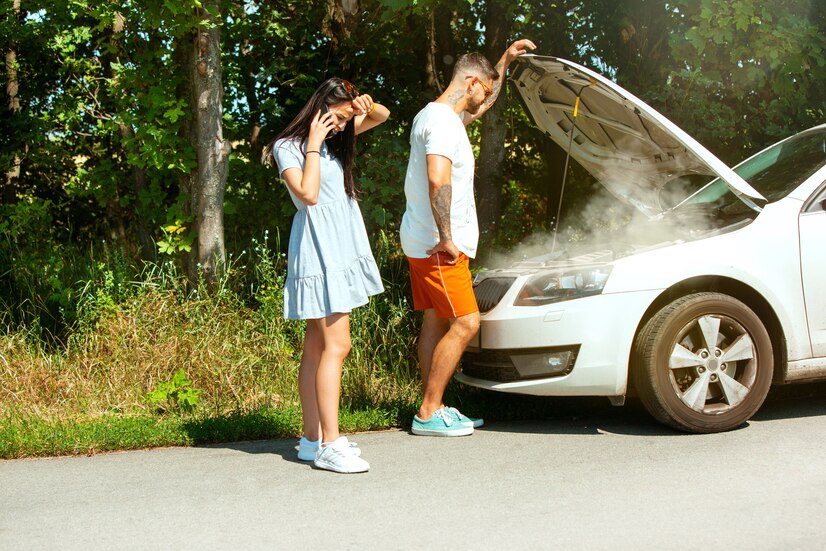Car accidents can be life-altering events, leaving individuals not only with physical injuries but also grappling with emotional trauma. In this comprehensive guide, we will explore the steps to recover both physically and emotionally after a car accident. Whether you’ve experienced a minor fender-bender or a more serious collision, this article is here to provide guidance on your journey toward recovery.
Physical Recovery
Physical recovery after a car accident is typically the first priority. It’s essential to prioritize your health and well-being. Here are some key steps to consider:
- Seek Immediate Medical Attention: After a car accident, it’s crucial to seek immediate medical attention, even if you feel fine initially. Some injuries may not manifest immediately but can worsen over time. A medical professional will assess your condition and recommend necessary treatments. Remember that your health is the top priority.
- Follow Medical Advice: Once you’ve received medical attention, it’s essential to follow the advice and treatment plan prescribed by your healthcare provider. This may include physical therapy, medications, or even surgery in severe cases. Adhering to the recommended treatment plan is crucial for a successful physical recovery.
- Allow Time for Healing: Healing takes time, and it’s essential to be patient with yourself and your body’s natural healing process. Avoid rushing back into your regular activities, as this can worsen injuries. Rest and proper self-care are essential during this phase. Your body needs time to recover fully.
- Rehabilitation Exercises: Depending on the severity of your injuries, rehabilitation exercises may be necessary to regain strength and mobility. These exercises are tailored to your specific needs and should be performed under professional guidance. Gradual progress is key to avoid setbacks.
- Legal Assistance: In some cases, you may believe that someone else’s negligence caused the accident. In such instances, consulting a car accident lawyer is a prudent step. They can help you understand your rights and pursue compensation for medical expenses, lost wages, and other damages. Legal support can ease financial burdens during your recovery.
- Maintain a Healthy Diet and Lifestyle: Proper nutrition and a healthy lifestyle can aid in your physical recovery. Ensure you’re consuming a balanced diet that supports healing. Avoid or limit activities that can hinder your progress, such as smoking or excessive alcohol consumption.
- Stay Informed About Your Insurance: Understanding your insurance coverage and rights is essential. Consult with your insurance provider to ensure you receive the necessary coverage for medical expenses and vehicle repairs. Being well-informed can alleviate financial stress during your recovery.
- Monitor Your Progress: Keep track of your physical recovery milestones. Document your improvements, setbacks, and any persistent issues. This information can be valuable when discussing your condition with medical professionals.
Emotional Recuperation
The emotional toll of a car accident can be just as significant as the physical injuries. Coping with trauma and emotional distress is crucial for overall recovery:
- Acknowledge Your Feelings: It’s normal to experience a wide range of emotions after a car accident, including fear, anxiety, anger, and even guilt. It’s essential to acknowledge these feelings and not bottle them up. Expressing your emotions is a healthy way to process what you’ve been through.
- Seek Professional Support: Consider speaking with a therapist or counselor experienced in trauma and post-accident emotional distress. They can provide coping strategies and a safe space to express your emotions. Professional guidance can help you navigate complex emotional challenges.
- Lean on Your Support System: Your friends and family can be invaluable sources of emotional support during your recovery. Sharing your feelings and concerns with loved ones can be incredibly therapeutic. Don’t hesitate to reach out to those who care about your well-being.
- Practice Self-Care: Prioritize self-care activities that promote relaxation and stress relief. This could include meditation, yoga, or engaging in hobbies that bring you joy. Taking time for self-care helps you recharge and maintain emotional balance.
- Gradual Exposure: As you progress in your emotional recovery, you may choose to gradually expose yourself to the circumstances that trigger anxiety or fear related to driving. This process should be done at your own pace and comfort level, allowing you to regain confidence over time.
- Join Support Groups: Consider joining support groups for individuals who have experienced car accidents. Connecting with others who have gone through similar experiences can provide a sense of belonging and understanding that can be profoundly healing.
- Set Realistic Goals: Establish achievable goals for your emotional recovery. Celebrate small victories along the way. Setting realistic expectations for yourself can reduce feelings of frustration and helplessness.
- Practice Mindfulness: Mindfulness techniques can help you stay grounded and present. By focusing on the here and now, you can manage anxiety and reduce the impact of traumatic memories.
Conclusion
In conclusion, recovering physically and emotionally after a car accident is a journey that requires time, patience, and support. Prioritizing your physical health, seeking professional advice when necessary, and addressing emotional trauma are crucial steps on the road to recovery. Remember, you are not alone in this journey, and there are resources and professionals available to assist you.
While we hope you never have to experience a car accident, understanding these steps can help you or someone you know navigate the challenges that may arise. If you have any legal concerns or need guidance on your rights, don’t hesitate to consult a car accident lawyer for assistance. Your well-being is of utmost importance, and taking the right steps can lead you toward a brighter future.
Pat Baker is a car safety enthusiast, a defensive driver, and a writer for car accident lawyers in the Philadelphia area.
ALSO READ: How Beneficial Is Dashcam Video In a Car Accident Case?











